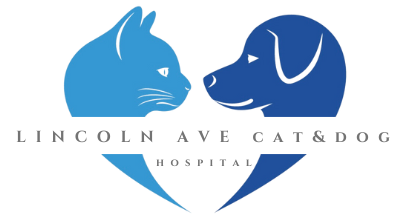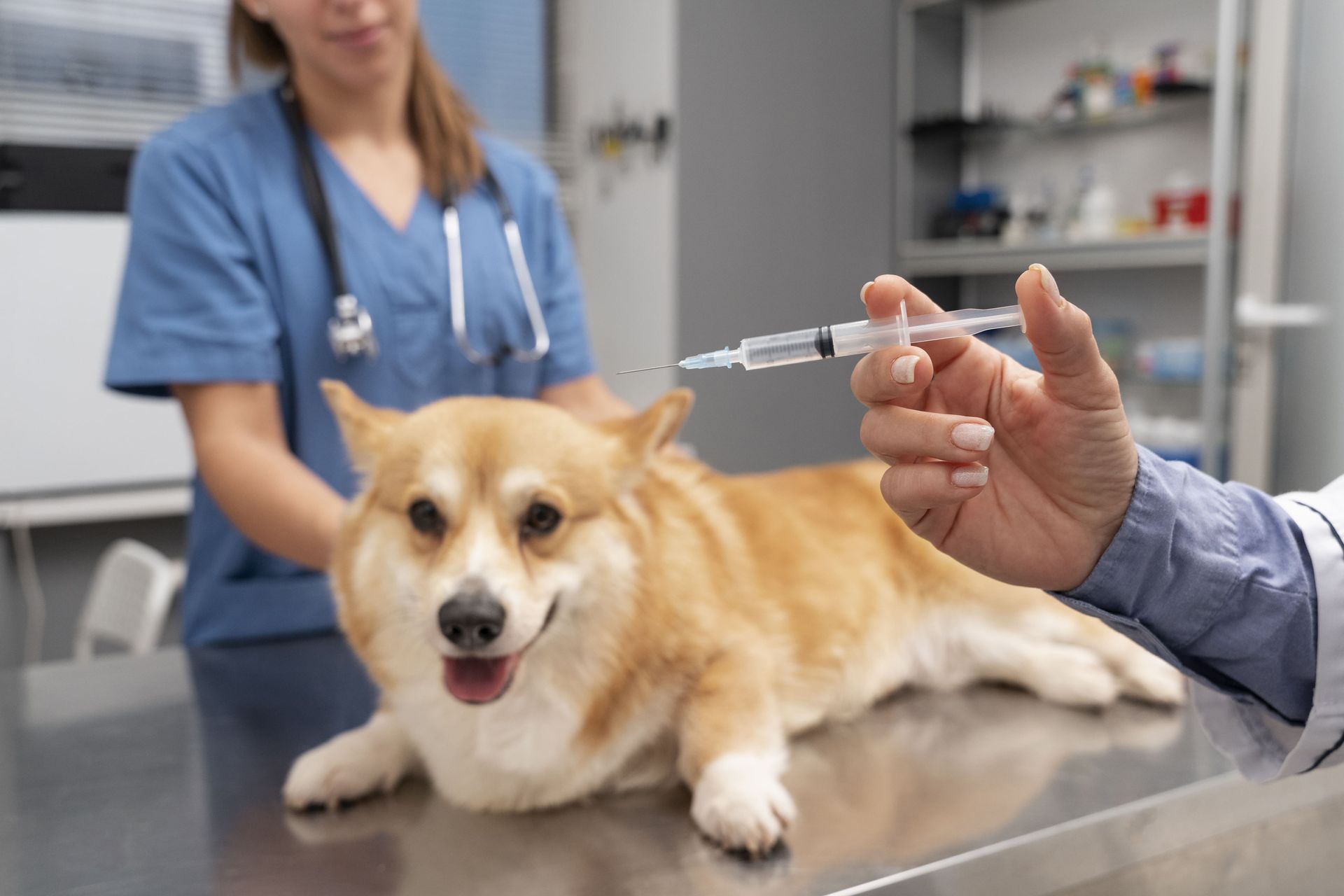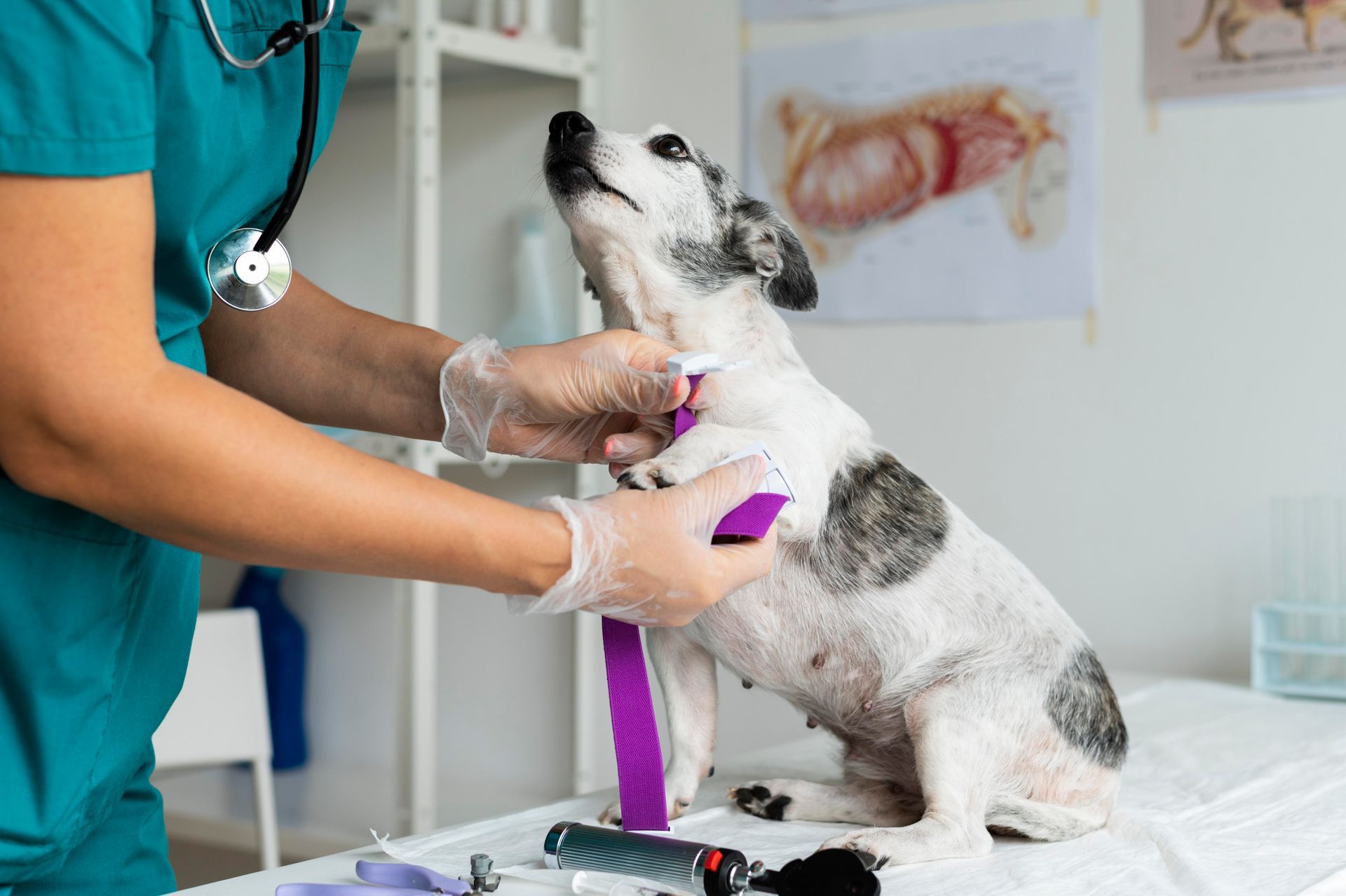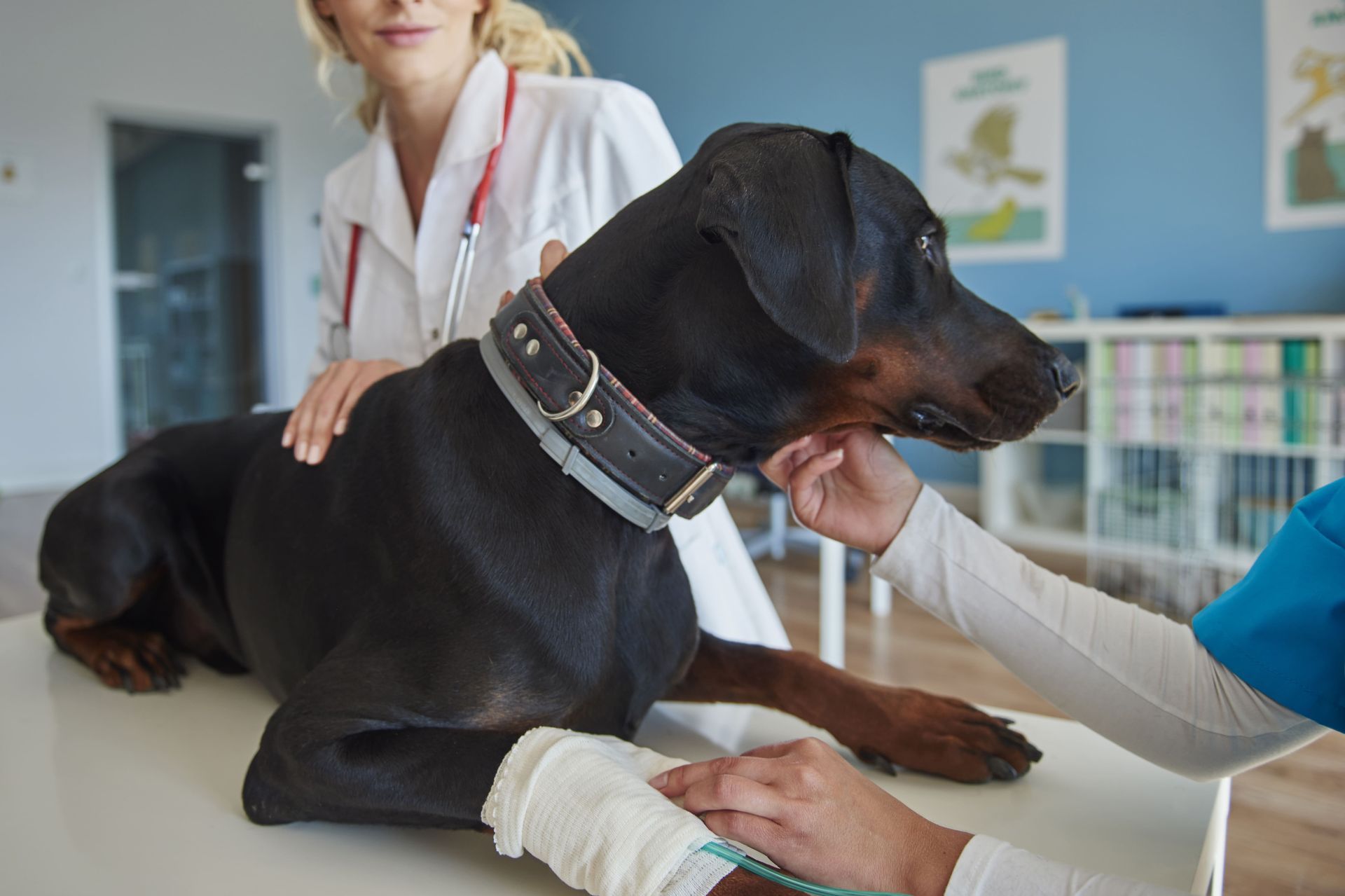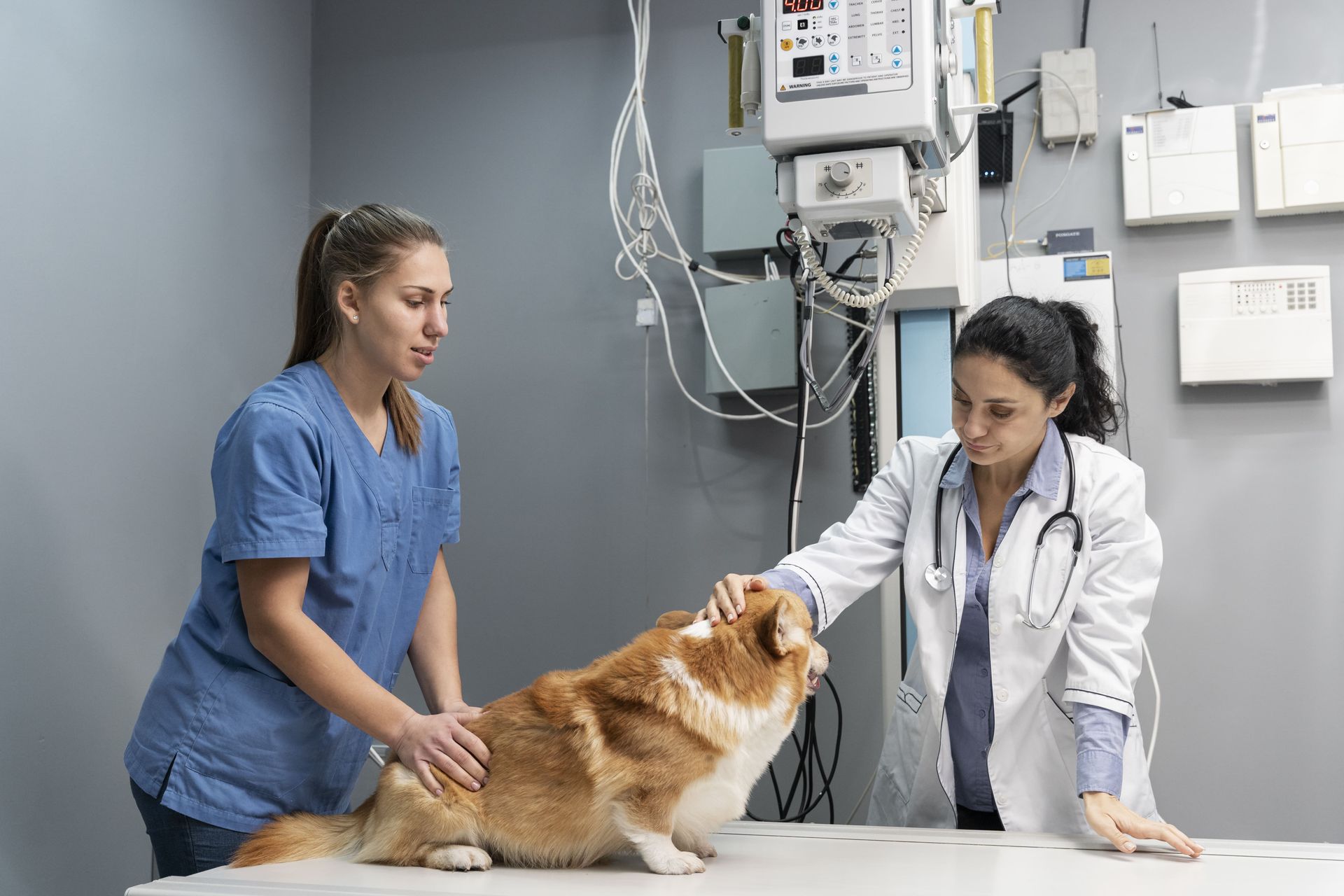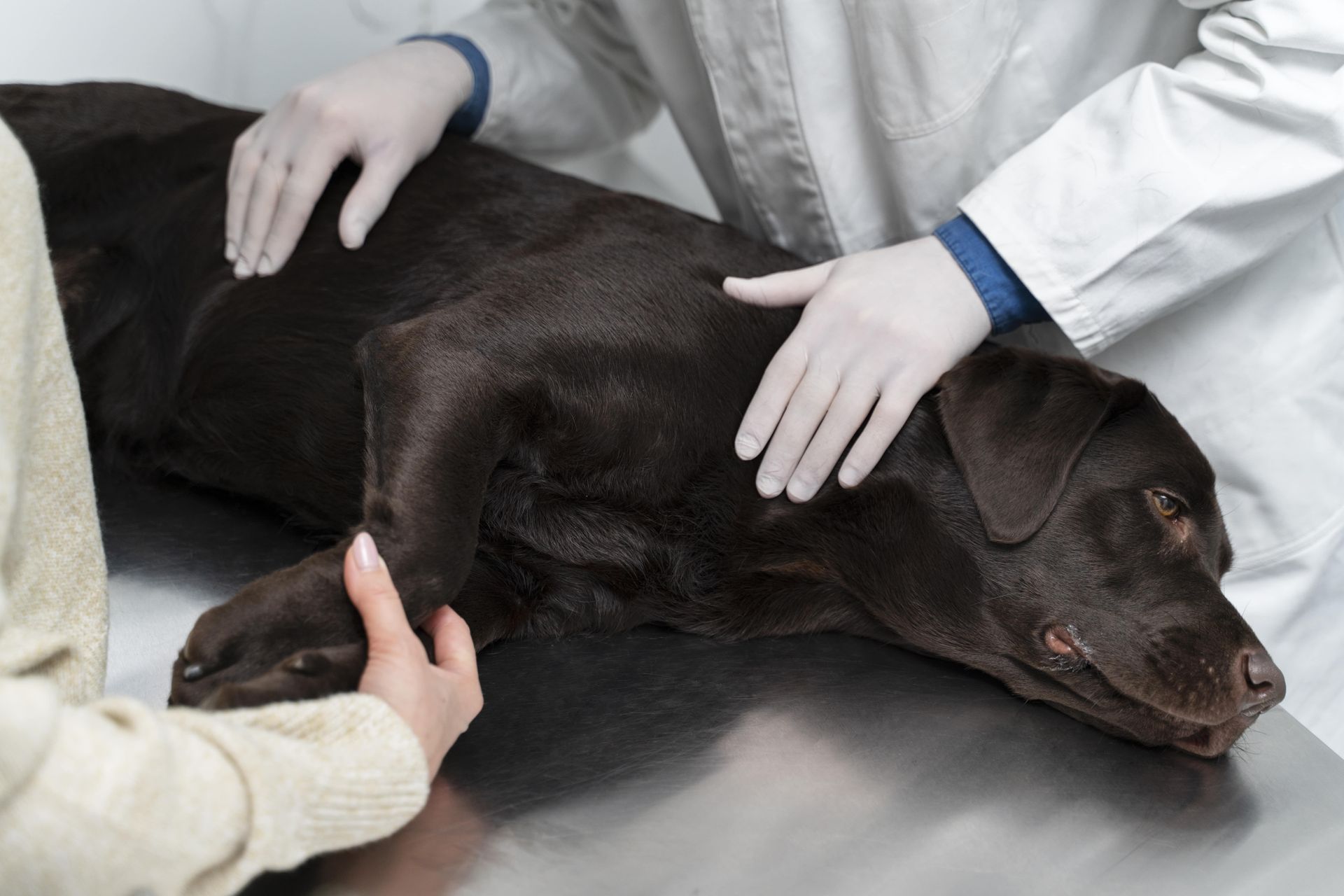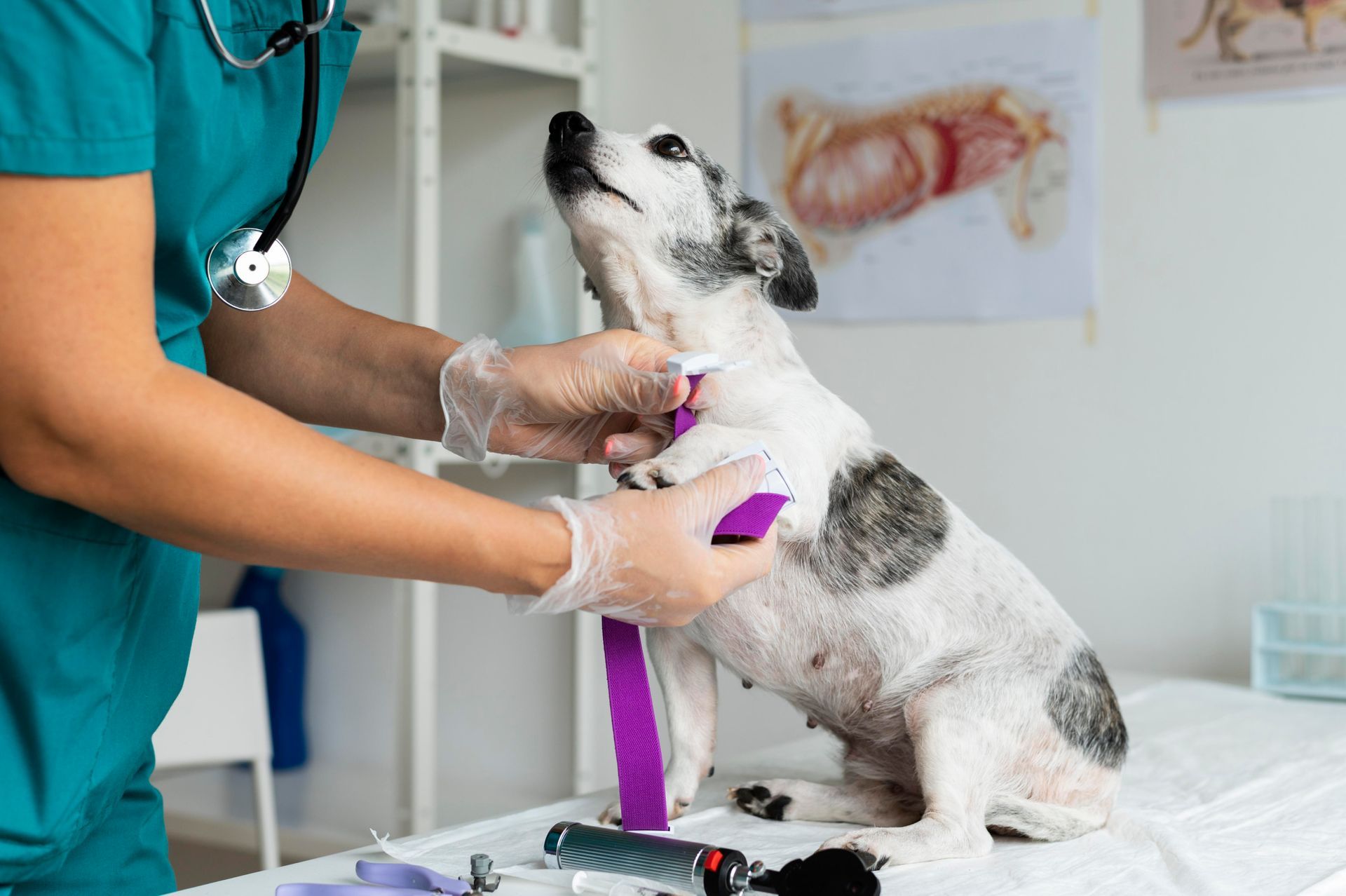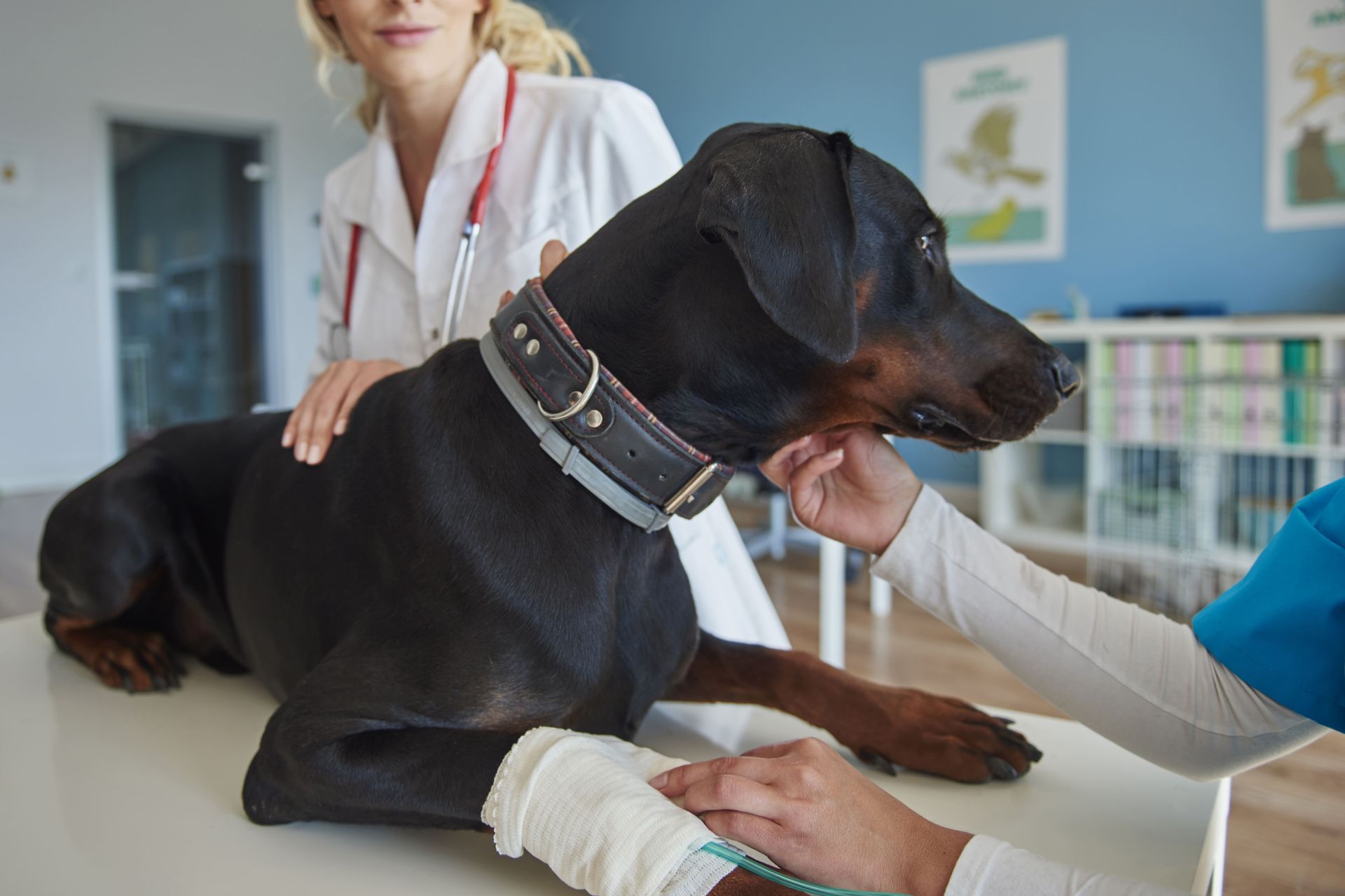Advanced Veterinary Care for 15 Common Pet Health Problems
Our pets are more than just animals; they’re cherished members of the family. As they grow and live their lives beside us, it’s only natural that they may experience health issues at some point. Fortunately, advanced veterinary care is more accessible and effective than ever. With the help of cutting-edge technology, treatments, and highly trained veterinary professionals, even the most complex pet health problems can be treated with skill and compassion.
Here’s a deep dive into 15 common pet health problems and how advanced veterinary care is transforming the way we manage and treat them.
1. Understanding Dental Problems in Pets
Dental issues are not just a human problem; they can significantly impact your pet's health too. Regular check-ups and advanced dental cleaning techniques can prevent tooth decay and gum disease in pets. Many pet owners overlook oral health, but it's crucial as conditions like gingivitis can lead to more serious health issues if left untreated. Advanced veterinary care offers technologies such as digital radiographs to identify underlying dental problems that aren’t visible to the naked eye. This comprehensive approach ensures that your pet's dental health is maintained at the highest standard possible. Alongside professional cleanings, vets often emphasize the importance of home dental care, advising regular brushing of your pet’s teeth to prevent plaque buildup and ensure fresh breath.
If you've noticed any signs of dental distress in your pet, such as bad breath or trouble eating, it might be time for a vet visit. According to the American Veterinary Dental Society, 80% of dogs and 70% of cats show signs of oral disease by age three. These staggering numbers highlight the importance of proactive dental care. Advanced veterinary clinics are equipped to handle rigorous dental procedures, ensuring that pets receive proper care in a safe environment. Moreover, understanding the nuances of specific symptoms such as drooling or swollen gums can guide timely interventions that prevent severe complications.
2. Battling Obesity in Pets
Obesity is a rising issue among pets, leading to numerous health complications. Advanced care involves personalized diet plans and exercise regimens to help manage your pet’s weight. Overweight pets are prone to conditions such as diabetes, heart disease, and arthritis, which reduce their quality of life significantly. Veterinarians leverage technology and precise measurement tools to track your pet's weight loss journey effectively. Employing strategies such as tailor-made nutrition plans, activity trackers, and even hydrotherapy can aid in promoting weight loss. One essential aspect of battling obesity is education; vets provide valuable insights on portion control and healthy feeding habits.
Recent studies show a significant correlation between pet obesity and lifespan reduction. As cited by Breckinridge Park Animal Hospital, obesity can affect a dog’s movement and overall health. By addressing this issue with professional guidance, pet owners can ensure a balanced and fulfilling life for their furry companions. Veterinary clinics often support this with treatments that incorporate physical play and mental stimulation, fostering an environment where pets remain active and engaged. Through regular vet consultations and monitoring, pet owners can maintain optimal health standards and avoid the pitfalls of obesity.
3. Identifying Skin Allergies and Solutions
Pets are prone to skin allergies that can cause discomfort and irritation. With advanced allergy testing and treatments, veterinarians can effectively manage and alleviate these issues. Symptoms like incessant scratching, patches of fur loss, and red or inflamed skin are indicators of allergies. Whether it's food-related, environmental, or parasitic, understanding the root cause is crucial for effective treatment. Veterinarians utilize cutting-edge diagnostic tools to pinpoint allergens precisely, eliminating the guesswork from treatment plans. This allows for targeted approaches such as tailored diets or hypoallergenic products that drastically mitigate allergic reactions.
Allergy management often involves a multifaceted approach, coupling medication with lifestyle adjustments. Data from Breckinridge Park Animal Hospital suggest that some breeds can be more susceptible to skin allergies due to genetic predispositions. Understanding these nuances helps in crafting more effective preventive strategies. In addition to medications such as antihistamines and topical ointments, vets may recommend therapies like immunotherapy for severe cases. Continuous monitoring ensures that improvements are tracked and treatments are optimized over time. Educating pet owners on home care, including grooming techniques and environmental control, complements professional veterinary treatments, offering a holistic approach to allergy management.
4. Managing Arthritis and Joint Pain
Many pets suffer from arthritis and joint pain as they age. Advanced veterinary treatments, including physical therapy and pain management strategies, can significantly improve their quality of life. Recognizing the early signs, such as stiffness after rest, reluctance to climb stairs, or visible limping, is essential for prompt intervention. Veterinarians employ diagnostic tools like X-rays and ultrasound to assess joint health and tailor plans accordingly. Treatments might include anti-inflammatory medications, joint supplements such as glucosamine, and innovative therapies like laser treatment or acupuncture, which have gained traction for their effectiveness in pain reduction.
Discussing the nuances of arthritis with your vet can pave the way for a comprehensive treatment approach that includes both medical and lifestyle adjustments. Investing in suitable pet beds and flooring surfaces ensures maximum comfort for pets experiencing joint discomfort. Additionally, veterinary services focus on the importance of maintaining optimal weight to lessen the stress on your pet’s joints. Early diagnosis and intervention not only alleviate pain but also slow the progression of degenerative joint diseases. As such, fostering an environment conducive to gentle exercise and mental stimulation remains key to supporting your pet through their golden years.
5. Recognizing and Treating Ear Infections
Ear infections are a common affliction in pets, but with the help of advanced diagnostic tools and treatments, they can be addressed promptly to prevent complications. Symptoms such as head shaking, redness inside the ear, or unusual discharge require immediate attention. Your veterinarian can employ methods like otoscopic examinations or cultures to determine the cause, whether bacterial, fungal, or parasitic. Advanced interventions, including ear cleaning procedures and tailored medication regimens, swiftly alleviate discomfort and promote healing. In severe cases, surgical options might be considered to rectify chronic issues, underscoring the importance of early detection and treatment.
6. Preventing Parasitic Infestations
Parasites can wreak havoc on your pet's health. Advanced veterinary care provides comprehensive prevention and treatment strategies to keep these pesky invaders at bay. From fleas and ticks to intestinal worms and mites, the range of parasites affecting pets is vast and varied. Vets use a combination of physical examinations, fecal tests, and blood screenings to diagnose parasitic infections accurately. Once identified, treatment plans often include medications such as topical solutions or oral tablets that are both effective and safe. In addition to immediate treatment, vets emphasize preventive measures, like year-round protection plans for outdoor pets or those living in endemic areas.
Regular veterinary check-ups play a crucial role in early detection and prevention of parasitic infestations. According to the Lincoln Avenue Cat & Dog Hospital , being prepared and familiar with potential threats helps safeguard your pet's health. Flea and tick preventatives have evolved significantly, with newer products offering extended protection and ease of application. Ensuring your pet’s environment—such as bedding and outdoor spaces—is regularly cleaned and treated further reduces the risk of infestation. Through advanced veterinary counsel, pet owners are empowered to take proactive steps, creating a multi-layered defense against parasites for their beloved companions.
7. Addressing Heartworm Disease
Heartworm is a serious condition that can be fatal if left untreated. Advanced veterinary care offers preventive measures and successful treatment options for affected pets. It's crucial to understand that heartworm transmission occurs through mosquito bites, making prevention imperative, especially in mosquito-prevalent areas. Techniques such as annual heartworm testing coupled with preventive medication keep this threat at bay. When caught early, the treatment involves a series of injections to eradicate adult worms, alongside lifestyle modifications to minimize activity during recovery.
For pet owners in high-risk areas, year-round prevention is the most effective safeguard against heartworm disease. With continuous advancements in treatment protocols, veterinarians are able to manage and mitigate risks associated with the disease swiftly. The availability and accessibility of heartworm preventatives allow for tailored plans that suit varying lifestyles and pet needs. Again, it is prudent to engage said measures as veterinary services recommend, reinforcing the importance of consistent and thorough protection for both dogs and cats.
8. Coping with Kidney Disease
Kidney disease is a significant concern in older pets. Through early detection and innovative treatment options, veterinarians can manage this condition effectively. Signs like increased thirst and urination, weight loss, and lethargy should prompt a visit to the vet for comprehensive analysis. Diagnostics generally include blood work, urine analysis, and imaging to assess the stage of kidney function deterioration. From there, treatment plans can incorporate dietary modifications, fluid therapy, and medications to support kidney function and slow disease progression. The goal of advanced care is to extend life expectancy while maintaining quality of life through effective management strategies.
9. Handling Diabetes in Pets
Just like humans, pets can develop diabetes. Advanced veterinary care involves precise diagnosis and tailored treatment plans that can help pets lead balanced lives. Identifiable symptoms include increased thirst, frequent urination, unexplained weight loss, and excessive hunger. Upon diagnosis via blood tests and urinalysis, vets craft a holistic treatment regimen encompassing insulin therapy, strategic diet adjustments, and regular blood glucose monitoring. Pet owners play a pivotal role in this ongoing management, ensuring adherence to prescribed routines and monitoring pet behavior for any changes. Education and support from veterinary professionals are invaluable resources throughout this journey, providing ongoing guidance and encouragement.
10. Diagnosing and Treating Cancer
Cancer is among the leading causes of death in older pets and can affect virtually any organ or tissue. Early signs include weight loss, unusual lumps, changes in appetite, or lethargy. Advanced veterinary clinics employ diagnostic imaging, biopsies, and lab analyses to confirm the diagnosis and determine the most effective course of treatment. These may include chemotherapy, radiation therapy, surgery, or immunotherapy. While a cancer diagnosis can be distressing, veterinary oncology offers hope through targeted treatment plans and palliative care to improve comfort and longevity.
11. Dealing with Gastrointestinal Issues
Gastrointestinal problems in pets often manifest as vomiting, diarrhea, bloating, or refusal to eat. These symptoms can stem from infections, dietary intolerance, inflammatory bowel disease, or even swallowed foreign objects. Advanced veterinary care involves diagnostic imaging, endoscopy, and blood panels to determine the root cause. Once identified, treatment may involve prescription diets, probiotics, anti-nausea medications, or surgical intervention in more severe cases. Regular monitoring ensures treatment efficacy and helps prevent recurrence.
12. Managing Respiratory Conditions
Respiratory illnesses like bronchitis, asthma, or pneumonia can cause coughing, labored breathing, and fatigue in pets. Early diagnosis using chest X-rays, blood tests, and tracheal wash samples allows vets to tailor treatment effectively. Advanced care strategies may include bronchodilators, oxygen therapy, nebulization treatments, or corticosteroids to manage inflammation. Pet owners may also be advised to reduce airborne irritants in the home, such as dust or smoke, to minimize symptoms and support recovery.
13. Supporting Vision and Eye Health
Pets can suffer from a variety of eye conditions, including cataracts, glaucoma, conjunctivitis, and corneal ulcers. Left untreated, these can lead to partial or complete blindness. Advanced veterinary care includes tonometry to measure eye pressure, retinal imaging, and surgical interventions when necessary. Topical medications, antibiotics, and anti-inflammatory drops help treat and control conditions effectively. Early detection and care are key in preserving vision and relieving discomfort.
14. Addressing Liver Disorders
Liver disease can be caused by toxins, infections, or genetic conditions and affects the body’s ability to detoxify, digest, and store nutrients. Symptoms may include jaundice, vomiting, and abdominal pain. Diagnostics include liver enzyme blood tests, biopsies, and ultrasound imaging. Treatment strategies involve supportive care through IV fluids, hepatoprotective medications, and dietary management. Ongoing monitoring of liver function helps track improvement and prevent further complications.
15. Correcting Behavioral Disorders
Behavioral issues such as aggression, anxiety, compulsive disorders, or excessive barking can stem from stress, past trauma, or lack of proper training. Veterinary behaviorists work closely with pet owners to assess root causes and implement behavior modification plans. Advanced care may also include anti-anxiety medications, pheromone diffusers, and structured training sessions. By addressing both medical and psychological components, pets can lead more relaxed and manageable lives.
Final Words
The world of advanced veterinary care has opened new doors in how we approach pet health. No longer limited to basic treatments, today’s veterinarians are equipped with sophisticated tools, knowledge, and innovative therapies that deliver results. From routine dental cleanings to complex cancer treatment, pets now have access to the same quality of care we expect for ourselves.
As responsible pet owners, staying informed and proactive means we can catch issues early and give our companions the healthiest, happiest life possible. Because when it comes to our pets, only the best will do.
Frequently Asked Questions
Q-1. How do I know if my pet needs advanced veterinary care?
Ans: If your pet is not responding to basic treatment, has a chronic illness, or shows signs of serious conditions such as cancer or heart disease, your vet may recommend advanced care or refer you to a Consultant .
Q-2. Is advanced veterinary care only available in large cities?
Ans: While major cities have more facilities, many suburban clinics offer telemedicine consultations and partnerships with mobile to bring advanced services closer to home.
Q-3. Is pet insurance worth it for advanced veterinary care?
Ans: Yes. Comprehensive pet insurance can cover surgeries, diagnostics, cancer treatments, and more, making advanced care more affordable in critical situations.
Q-4. How do I prepare my pet for a referral to a veterinary?
Ans: Gather your pet's medical records, including test results and medications. Follow fasting instructions if necessary and ensure your pet is calm and comfortable before the visit.
